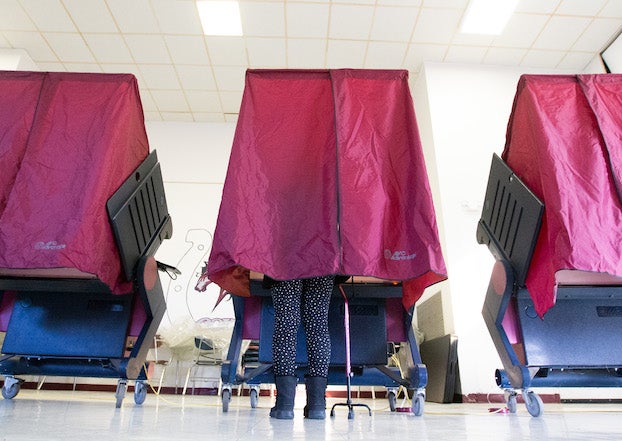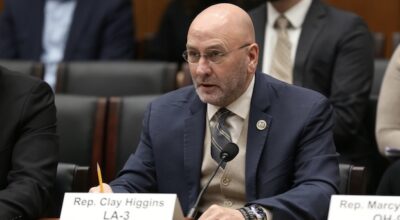Italian chef cuts through lots of red tape to realize dream
Published 6:23 am Wednesday, August 24, 2022

- Leesa Howard in her home kitchen with her son. (Special to the American Press)
If Leesa Howard had known the difficulty and expense involved, Lake Charles might be without its incubator and commissary kitchen, Le Cucina. It has the distinction of being the first in the city and the only one of its kind. Le Cucina, which means kitchen in Italian, is the only full-time commissary between Baton Rouge and Houston, according to Howard.
“I grew up with good food, “ Howard said. “My grandmother was from Sicily. “Once a year, on my birthday, my mother would make stuffed artichokes.”
It was a labor intensive, expensive undertaking. That’s why it was only served once a year.
On the day of the interview, Howard was preparing for her son’s birthday with lasagna and Amaretto white chocolate bread pudding.
“About six years ago, I had people asking me to cook for them,” Howard said, “just some friends. I was Italian. That’s what I do. I was newly retired from McNeese, and I had time on my hands. So, I thought, no big deal.”
When her friends’ friends tasted her food, they asked if she would cook for them too. She picked Wednesday to do her cooking and made a quick phone call to the health department to get their blessing.
“I found out I needed a commercial kitchen that they would approve of,” she said. “The permitting process was arduous. I didn’t realize how difficult it would be. I took a food safety class. I did everything that I was supposed to do.”
She found a restaurant that would allow her to use its kitchen in the off hours. After her health inspection, she was told that in order to work in that commercial kitchen, she would need her own refrigeration and dry storage space. The KC Hall allowed her to rent their kitchen space, but it failed inspection because it did not have a grease trap.
“I told the inspector that not having a grease trap wouldn’t pose a problem because I didn’t do any frying,” she said.
When the inspector told her that she would need it for her gray water, she said she didn’t plan to have any of that either. Then she found out gray water is the water used that goes into the grease trap instead of into the city’s wastewater. Her next try was in a beautiful new commercial kitchen at Queen of Heaven Daycare. Someone cooked for the kids in the morning. She would use the kitchen in the afternoon. Everything was fine until someone from the daycare walked in the kitchen one day to cut up a piece of fruit. The inspector happened to be there and told her that she couldn’t share a kitchen in that way because of the possibility of cross contamination.
She had just about decided not to cook meals for friends to purchase until a trip to Austin put her in touch with a sorority sister who owned a commissary kitchen.
“I didn’t even know what that was,” Howard said. “I found out it’s a kitchen that rents to people who want to cook for the public.”
The friend discouraged Howard from pursuing the idea because of expense and because it was such a heavily regulated industry.
“I came across this old building here that had been a little restaurant,” Howard said. “It was run down, but it had a grease trap. It had a commercial stove and vent hood…”
It was also more than she could afford. She talked to her husband about taking out another mortgage.
“I really feel called to do this,” she told him.
The couple jumped in, and without a budget, they watched YouTube videos to learn how to tear down and rebuild walls and lay floors.
“My poor husband, the things I put him through,” she said. “My thought was, if I can get just one food truck, it would pay for the note and I would have a kitchen I could cook in.”
The grand opening was celebrated in 2016. A few people stepped up to use it. The health department put the commissary, something with which they had little experience, through the regulatory ringer.
“To make a long story short, here we are five years later and 27 people pay me to use the kitchen,” Howard said. “I just believe God has led me here.”
She serves farmer’s market vendors, food truck owner/operators, caterers and others. The kitchen is located at 536 Alamo, a couple of blocks from the Ryan Street Books a Million.
“I see my role as not only supplying a commissary kitchen but providing a business incubator.”
She helps businesses navigate the permitting process that she now understands completely and endorses and she does it free of charge.
“Every single thing they say and do, they say and do for a reason,” she said. “I was so naive. I am grateful I didn’t know how hard or how expensive it would be to get here. Ignorance is bliss.”





